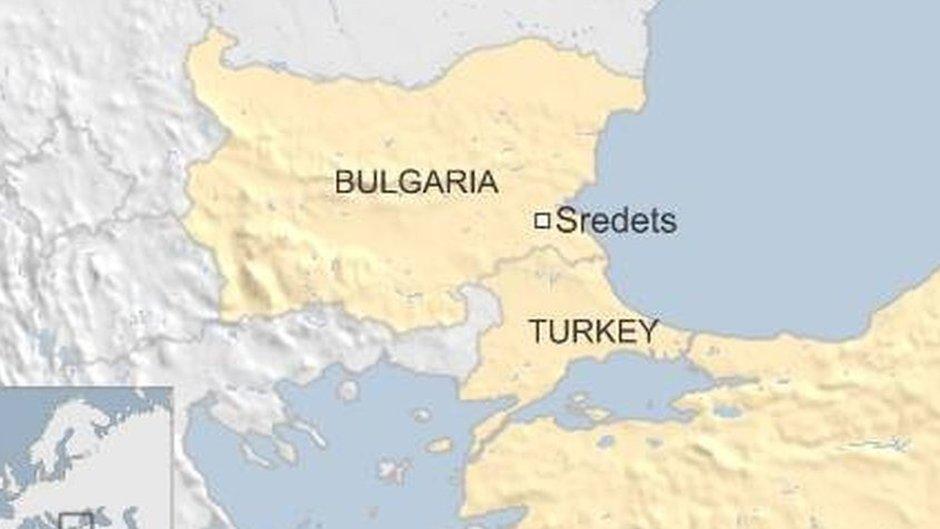Migrant crisis: The hard road through Bulgaria
- Published
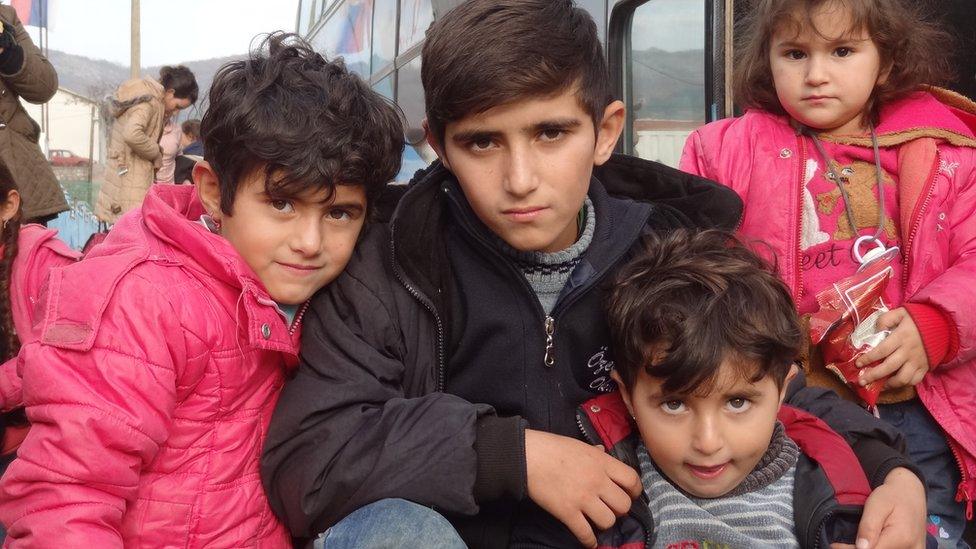
Many of the migrants are young and vulnerable
As Bulgaria steps up security at its borders, migrants travelling through the country to Serbia face tougher checks from police. The BBC's Nick Thorpe spoke to some of those who made it to Serbia.
Fear stalks the mountain passes between Bulgaria and Serbia, but it is a different calibre of fear to that on the streets of Paris or Brussels.
The 200 mostly Afghan migrants who make this journey every night are afraid of the Bulgarian police, afraid of the cold, but above all afraid that Europe will not accept them after all.
And then they might be sent back to the mercy of those they fear the most - the Taliban and the so-called Islamic State (IS).
They see a bitter irony - the same extremists who terrorised them at home now terrorise the countries where they hope to seek refuge, hardening public sentiment against them.
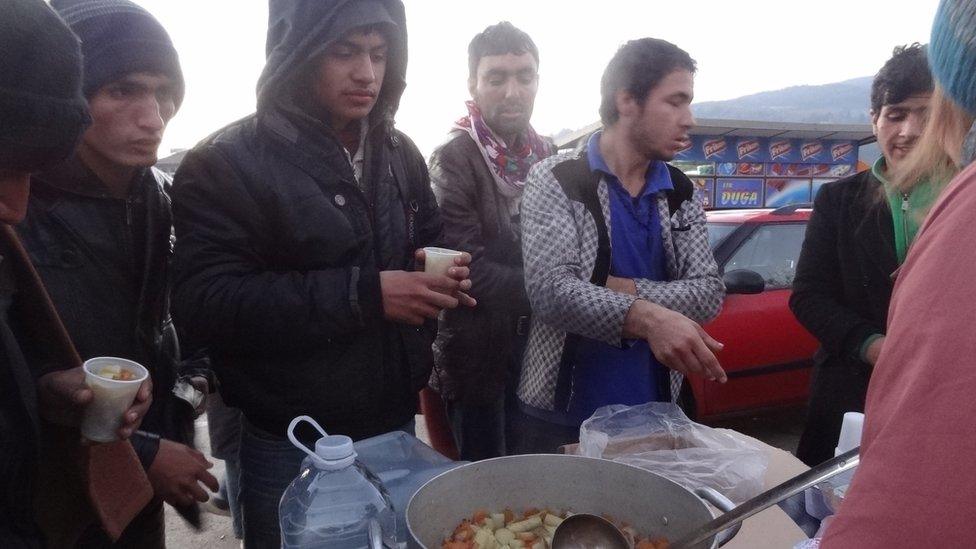
The migrants depend on the generosity of those who greet them along the road
In the first light of dawn at Dimitrovgrad, a town in south-eastern Serbia, a small group of refugees wrapped in silver survival blankets queue outside a refugee reception centre.
Here they will be registered, fingerprinted and allowed to board buses bound for the border with Croatia. Each has a horror story about the Bulgarian police.
"They were too bad," says Ali, from Kandahar in Afghanistan. "They caught us in the middle of Sofia. We had to pay them all our money - $500 (£330; €470) - to let us go."
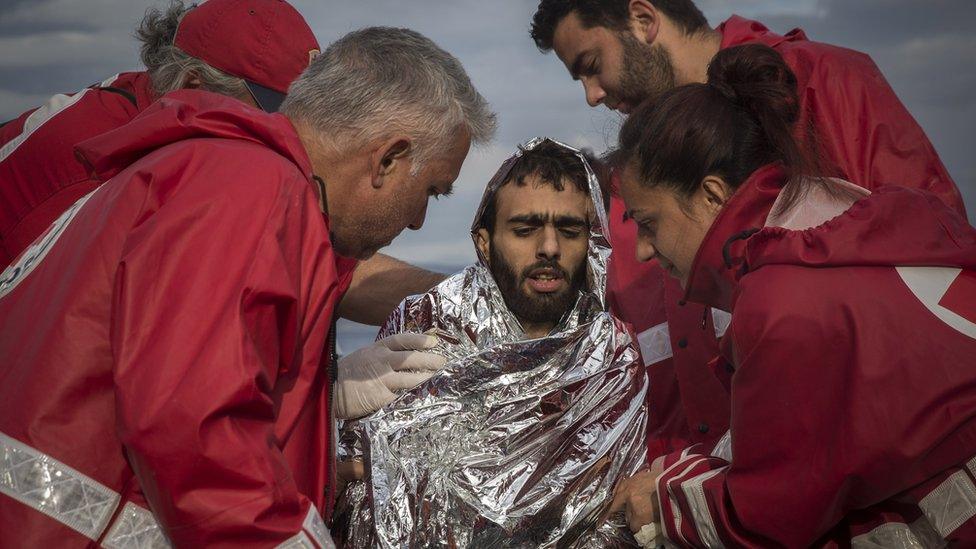
Around 5,000 migrants reach Europe every day through the Balkan route
"We were 17 people, in a small room, in jail for five days. We did not have enough food. They treated us badly," said Hasna, a young woman from the Yazidi minority in northern Iraq.
As we speak, her brother shows me pictures of their hometown, Sinjar, on his phone. Street after street is just a pile of ruins. The town fell to IS last year, causing an exodus of up to 50,000 Yazidis.
Kurdish forces recently recaptured what is left of the town.
On 15 October, one Afghan migrant was shot dead in eastern Bulgaria, in an incident the police say was an accident.
"Once you are in the hands of smugglers who are complicit with the police, you are basically helpless. There is no one to whom you can turn," said Krassimir Kanev, head of the Bulgarian Helsinki Committee, a human rights group. He also questions the police version of the October shooting.
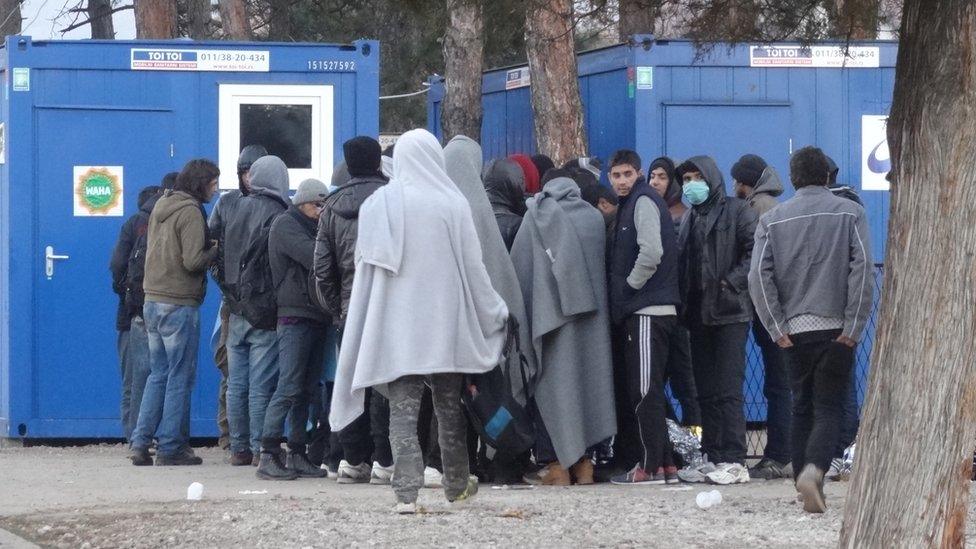
The facilities for migrants are rudimentary along much of the route
Bulgaria's Deputy Interior Minister Philip Gounev told the BBC in Sofia that allegations of police mistreatment are "isolated instances", not a reflection of basic shortcomings.
"There are cases of corrupt officers. We take these very seriously, and it is a high priority to make sure they are investigated and prosecuted," he said.
"Quite a few cases of violence and excessive force happen exactly when border guards are tired and stressed after long shifts… they may take it out on refugees."
Bulgaria is training an additional 300 border guards. It has mounted night-vision surveillance cameras all along its 260km (161-mile) border with Turkey, part of which also has a substantial razor-wire fence.
Groups of migrants are spotted approaching the border several kilometres before they reach it. The Bulgarians inform the Turkish army and send their own border police units to try to stop them crossing.
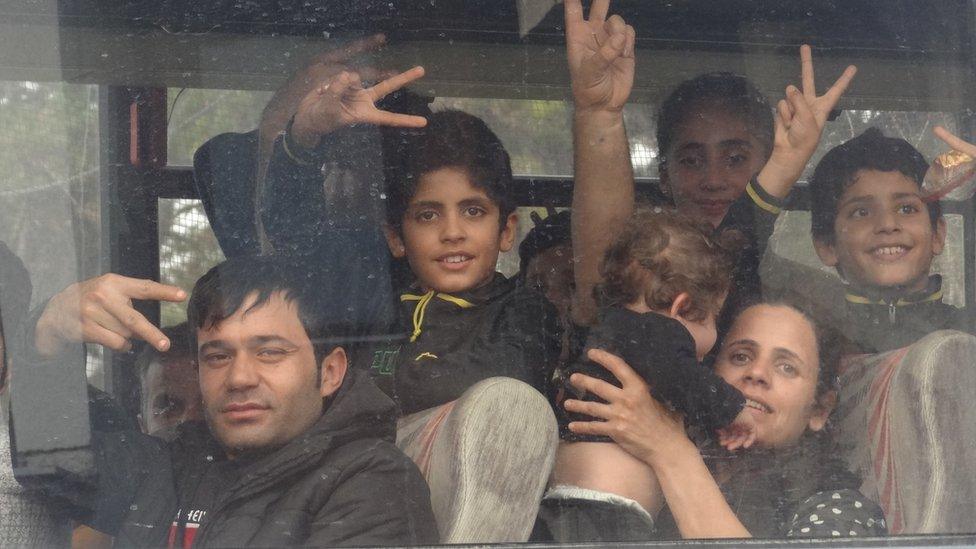
The migrants are hoping for a better life in western Europe
Hasna and her extended family were pushed back four times before they made it across.
Once inside Bulgaria, some are arrested repeatedly, serving weeks or months in detention facilities, in what Mr Gounev calls "a game of hide and seek until they eventually leave" - across the border to Serbia.
Bulgaria is one of the few countries in eastern Europe registering and fingerprinting all migrants and was doing so long before the Paris attacks, Mr Gounev says.
"We're actually doing a better job than most western countries," he says, adding that asylum applicants are interviewed at least twice by intelligence officers.
"Several dozen" foreign fighters have also been arrested on their way across Bulgaria in the other direction, to fight for IS, he said.
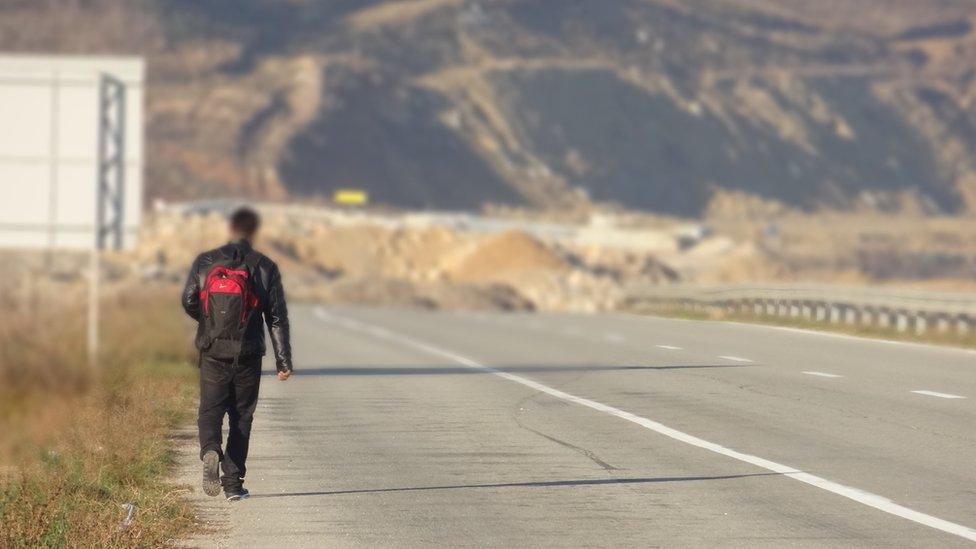
The migrants fear being turned back by the countries they are hoping to reach
Back in Dimitrovgrad, Serbian taxi drivers roam the forest roads near the border, to bring footsore migrants the last few kilometres to the reception centre, for a handsome fee.
Martin, a volunteer from Cologne with the No Borders group, curses the Red Cross for going home at 4pm and not turning up till 8am, leaving his raggle-taggle band of anarchists and idealists to serve hot drinks and food all night, and distribute warm clothes to the new arrivals.
Ali from Kandahar, meanwhile, has just reached an airbase for refugees near Munich.
"I have faith that Europe will accept us, if we can prove that our life was threatened. If they don't accept us, they can send us to another country. And the last option is that they will send us back home."
- Published19 November 2015
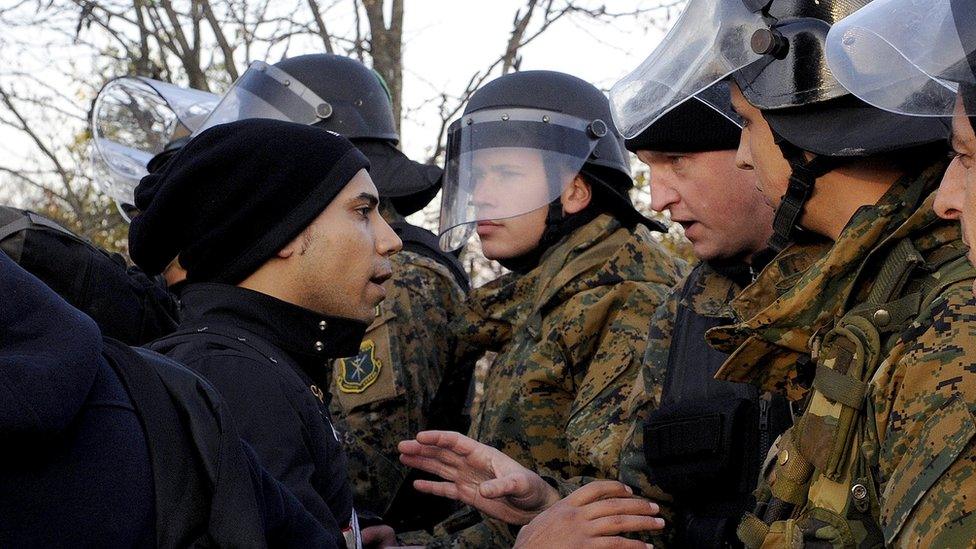
- Published18 June 2015
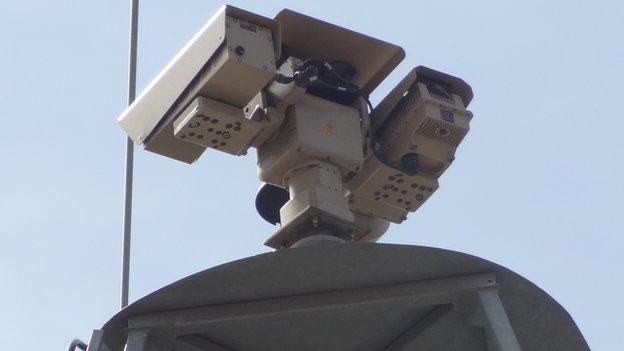
- Published13 November 2015
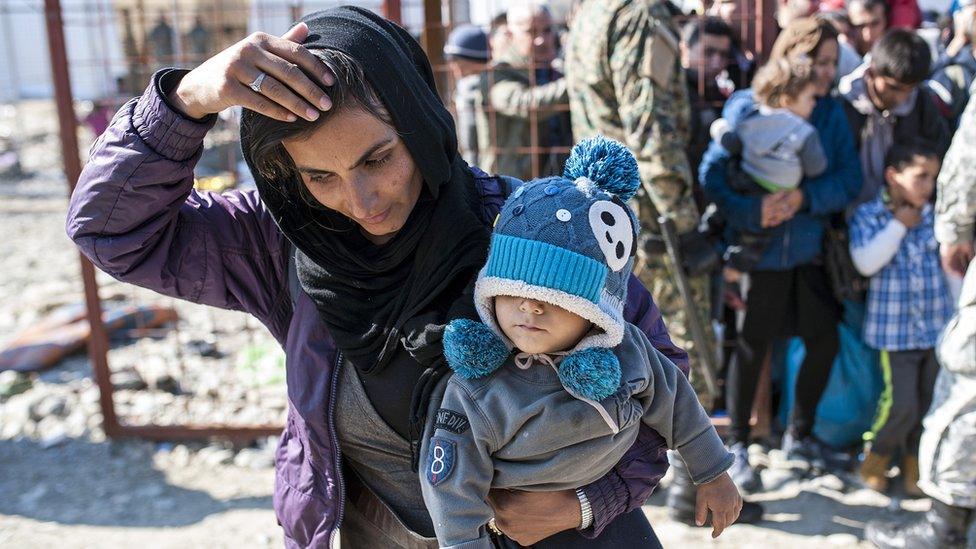
- Published16 October 2015
